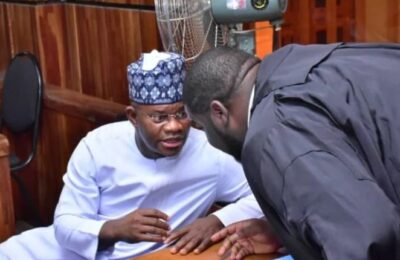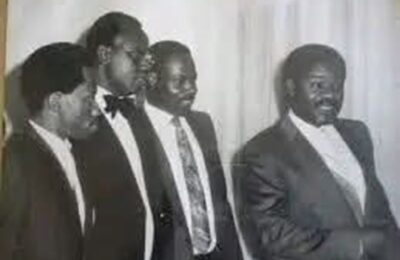I learned that among the resolutions facilitated by PBAT between Wike and Fubara was that Fubara should recognize the officials loyal to Wike, such as chairmen, commissioners, and state assembly members. That is Wike’s should be reinstated. It was said that Fubara accepted all the conditions given to him before he could be reinstated as governor. Although I haven’t personally read the full details, I would be glad if this is true.
My reason is simple, there must have been an agreement between Wike and Fubara before Wike chose him, among other qualified individuals, to succeed him. It is clear that some of those agreements were not honored, and that seems to be the root of the conflict between them.
Many of the people rallying around Fubara now were not part of the initial process, people who didn’t know how he was chosen as the party’s candidate. Yet, they now portray Wike, the person who made him governor, as his enemy. These opportunists, who were never genuine supporters, have now been discarded like a used condom after a hookup. Alhamdulillah.
Conflicts between a successor and his benefactor are often triggered by those who were never loyal to the benefactor but supported the successor during the campaign with the intention of sidelining the predecessor and his allies once victory is secured. They aim to form a new political structure without the involvement of the person who worked day and night to make the successor’s dream a reality.
The benefactor did not just endorse the successor, he also stepped on many toes and used his personal resources and political network to ensure the successor won the election. But after becoming governor, the successor starts to sideline those loyal to his benefactor when making appointments. And yet, he expects his benefactor to remain silent or fold his arms? Isn’t that a direct attempt to destroy his political structure?
As a successor, are you supposed to build on the existing political structure that helped you rise, or are you to destroy it and start your own from scratch?
Eventually, the successor may begin to punish those who remain loyal to the benefactor by denying them opportunities. This is why many predecessors today are wary of allowing newcomers to take key positions in their successor’s cabinet, because those newcomers are usually the ones instigating disloyalty for selfish reasons.
They often tell the successor, “You’re now occupying the same seat your predecessor once did, and he too made decisions without consulting anyone, so you should be proactive and act independently.” But these greedy and selfish individuals forget that the predecessor and successor did not follow the same path to power. While the predecessor fought hard and used his own resources to attain office, the successor rode to power on the shoulders of his benefactor.
As a successor, you must always understand: no one in politics can do for you what your benefactor did, making you the party’s candidate and facing many battles to ensure you won. From nobody to the position of Governor is the greatest elevation that you should be forever loyal to whoever gives you a ladder to that height.
– Engr Ira Habib writes from Kogi state.




